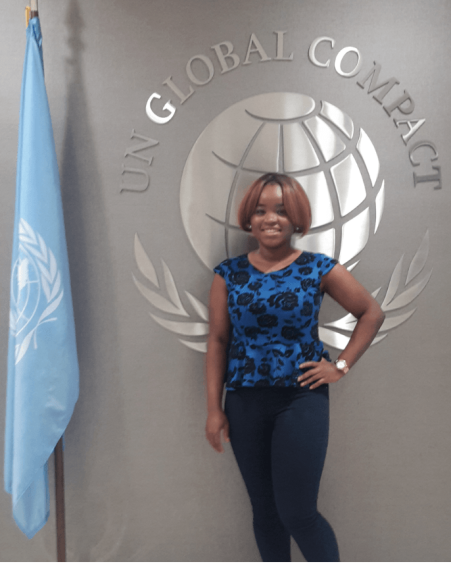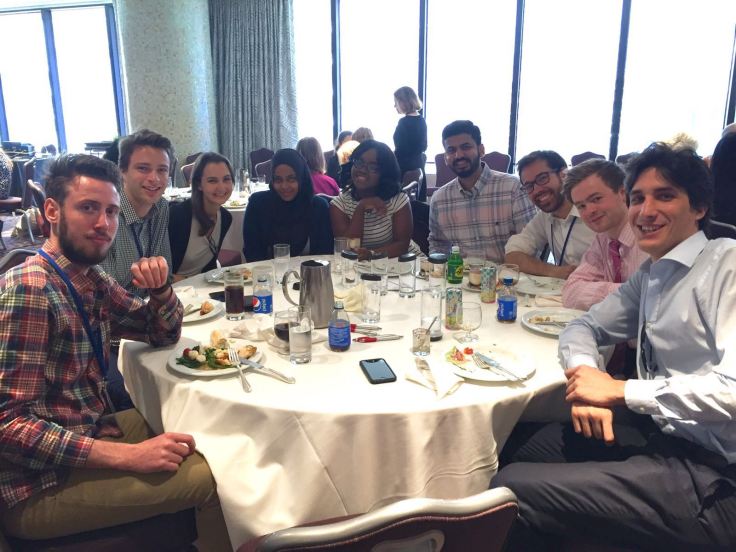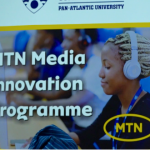Last year, I had the opportunity of interning with the United Nations Global Compact (UNGC), New York. It was a memorable experience and one of the opportunities I am thankful to God for and remain thrilled about. Quite a number of people who knew about it have asked me how I got into the programme so I figured that since I had a blog, I might as well document it here as other people might be interested.
So here we go

Why should you do a UN Internship?
Well, why shouldn’t you? (lol, just kidding). The UN is arguably the biggest multilateral agency in the world and I think its great to have the opportunity to work there, if not for anything, the great exposure it affords you. However, beyond prestige, I think there should be more practical considerations such as your interests, your career plans and how the internship advances it and whether you can actually afford it because sadly it is UNPAID (will talk more about this later).
You may also be wondering why not get a full time job instead of doing an internship. The truth is that while it is not impossible to do so, the reality is that the International Development job market is extremely competitive. Many entry level full time jobs in the UN, World Bank and other International Organisations/ NGOs often require a minimum of 3 years work experience; so if you are like me who at the time of application had roughly a year of experience, it would be pretty difficult. So people therefore do Internships even multiple ones in order to increase their chances of getting into these organisations or into the field in general. Interning with the UN looks good on one’s CV and might therefore increase your job prospects. Besides, there are usually multiple events going on almost everyday at the headquarters which provides you with ample opportunities to network with potential recruiters from various industries.
What sort of qualifications do you need?
First of all, a vast majority of the Interns I met either had or were in the process of completing a graduate programme; there were few people with only a Bachelor’s degree. Many of them were in fields such as Law, Economics, International Relations, International Development, Finance and suchlike; but fret not, these are not the only degrees that are needed at the UN. The UN is a very big and complex organisation and has about 70 funds, departments and programmes, many of which are specialised in issues such as Education, Health, Environment, Women’s Empowerment,Agriculture, Nuclear issues etc; so regardless of whatever qualifications you have, I believe that you can find a way to fit in somehow.
It also helps if you have a track record of volunteering in any of these fields or in any of the sustainable development goals. In addition to this, being bilingual or multilingual in UN languages is another great asset; almost everyone I met was at least bilingual. This language requirement isn’t limited to only the UN however, most international organisations value people who are at least bilingual. The foregoing and any other special skill should make your application quite interesting.
So, what is the actual application process like and share some tips?
Typically there are two batches in most agencies; the Summer and Winter Batches but it is usually quite flexible anyway. So if you want to start in the winter, you should apply in the summer and vice versa. But the following points about the application are worth noting.
- You have to make sure that your application is very well done and if possible get experienced people to review it; be sure to highlight all your accomplishments i.e; awards, leadership positions, scholarships etc. and if you have great extra-curricular activities and volunteer experiences, include it and show how all of these have motivated and qualify you for the internship. This is very key as the Internship is highly competitive, not sure of this statistic but I read somewhere that the acceptance rate is about 8% or thereabout.
- Most agencies advertise Internships year round on UN Inspira while some put it on their agency website. So check Inspira first and if you have a particular agency in mind and you don’t see any advert, you can then check their specific websites.
- You have to apply widely, early and exercise patience.You have to apply widely to increase your chances of being selected. In my case, I applied between July and August to about 8 different agencies. I interviewed with 3, wrote a test with one of them and eventually got two offers. The recruitment process varies however, some agencies only interview while some administer both tests and interview. And yes, patience is key; if you are lucky enough, they will get back to you in a couple of weeks and you might perhaps be able to secure the internship within a month but ideally it takes somewhere around 3-6 months. I applied for this UNGC Internship sometime in August and I did not get an initial email till November and then got the offer eventually in December (about 5 months), I got my second offer in January.
- I would also advise for you not to be too rigid or specific in the agency you are applying to in order not to limit your chances. For example if you are interested in climate issues, you need not only apply to the United Nations Environment Programme (UNEP); other agencies such as the UNFCCC, UNDP , UNGC also work on Climate issues in some capacity so you might as well apply to them.
What do Interns do?
It depends really on the agency you are working with,it mostly comprises research assistance, administrative work and organising events. The intensity of each component depends on your agency and supervisor. The advert however usually has the job description so that may be a good indicator of what to expect.
Benefits of interning with the UN?
I am going to enumerate some of the things I consider beneficial in no particular order .
- First, you get great exposure by virtue of the work you do, events you attend and the people you meet. Personally I can say my 6 months there vastly increased my knowledge of world issues and the most pressing global challenges and I learnt so much about issues I care deeply about. I also had an actual experience of the complexity of the UN system and how it actually works in reality and this cleared some of my naivety about the UN.
- You get to attend really cool events like this, because as an Intern you get passes to majority of the activities happening there. Access to these events therefore affords you the opportunity to meet with very important people doing really great work across the world. In addition to this, you get to work with very bright people from across the world, who care deeply about the issues they work on and have very interesting experiences and perspectives on issues.
- In terms of actual practical skills, I think that is more personal and a function of your job. So for me, I improved my networking and interpersonal skills; given the number of events we had to participate in and the diversity of people I had to work with, I had little or no choice. I also honed my research skills and got a better understanding of how partnerships between the United Nation and the private sector works.
- If it’s your first time in New York (like me), being an Intern is a great way to explore the city together with other interns and create memorable experiences! Some of my fond memories include hanging out at Central Park, seeing the statue of liberty aboard the Staten Island ferry, appreciating African American history/culture at Harlem amongst others. Also as a UN Intern, you get fringe benefits like discounts at the UN Souvenir/gift store and visiting certain tourist attractions e.g. MOMA (Museum of Modern Arts) for free.
- Finally, its the UN! It is usually a great conversation starter as most times people are usually interested in hearing about your experience. It looks good on your CV too!
Downsides?
Off course its not all roses, there are some downsides.
- First, its unpaid, ; with the exception of the ILO and IFAD. So it does have serious financial implications as UN offices are usually located in expensive cities such as Geneva, Paris, Nairobi or in my case New York. So if you do not have any form of sponsorship, I’m afraid they don’t make any concessions. Personally I think it’s unfair as it is antithetical to the UN’s position on human rights and global inequality, as these opportunities are taken up only those who can afford the living costs not necessarily the most qualified. You can read more about the argument for this policy here and some initiatives fighting against it here.
- Second, there is a policy which bars Interns from applying for any job within the particular agency they worked until 6 months after the completion of their internship. So if you have hopes of being immediately retained, the chances are extremely slim, if not impossible.
- Third, you get to know the UN for what it actually is not what you think it is- the crippling bureaucracy, politics and the likes. But how you interpret this is highly personal.For some it may be demotivating, I know some Interns who said they were no longer so enthused by the UN while for some others like me, it revealed opportunities for making the UN system work more effectively to address global problems.
With the UNGC Intern squad at the Marriott Marquis whilst planning for the 2016 UNGC Leaders summit.
So with these downsides, is it really worth it? Well, I would argue that it is and that it would help if you view it as a strategic long term investment or even short term. Short term in the sense that, a work experience with the UN may pique recruiters interest in you. Long term, in the sense that if you intend to return to the UN in the future, you can use the opportunity to make valuable contacts; a lot of the staff I worked with were at some point UN Interns themselves and returned to work there a couple of years after they had completed their internships.
Published with authorisation by Nwamaka Ogbonna, a 2016 United Nations Global Compact Internship Winner.










